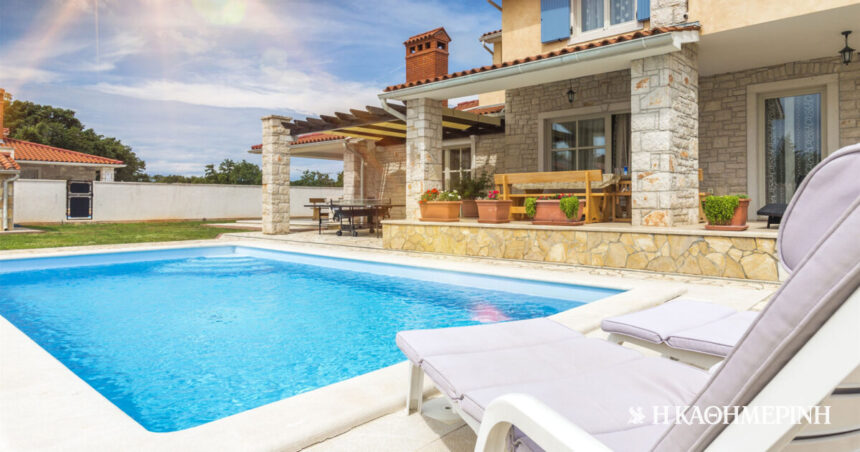The sharp and large increase in the Greek holiday home market is developing into a strategic advantage interest rates by the European Central Bank. This development has pushed interested buyers to focus on markets such as Greece, where it is still possible to acquire a holiday home without needing a bank loan, i.e. exclusively using their personal savings.
According to a related analysis by Elxis, a Greek company specializing in this market and based in the Netherlands, the new trend has resulted in a steady increase in buying interest for holiday homes in Greece. “After the increase in interest rates, we see that among our customers the desire for bank loans, in the context of acquiring a holiday home, has frozen. This is because the interest rate on the loan, amounting to 4%-5%, essentially nullifies the return that an investor can have from the exploitation of the holiday home he buys”, explains Mr. George Gavrielidis, CEO of Elxis. The fact that prices in Greece are lower compared to the majority of other markets works in favor of our country.
Also, the fact that in Greece the average selling price of a newly built holiday home hovers around 300,000-350,000 euros, making it ideal for European investors, something that has begun to be noticed by an increasing mass of prospective buyers. “There is great value in holiday homes in Greece, as for a low amount, compared to other markets, one can acquire a house near the sea, or with a view to it, with a swimming pool and all the amenities,” notes Mr. Gavrielides .
In this context, it is estimated that in the coming years the Greek holiday home market could potentially attract up to 3 million prospective buyers from Northern and Western European countries, such as France, Germany, the Netherlands, England, Switzerland, Austria and Belgium. It is estimated that in these markets there are over 300 million residents who have 250,000-350,000 euros in savings, they are worried about the inflation and they cannot buy a property with this money in their country, without necessarily resorting to borrowing.

This turns some of them in search of alternative solutions, such as e.g. the acquisition of a holiday home in Greece. “With very conservative calculations, it is possible for the Greek market to address a potential investment audience of 3 million people. To do this of course, the required volume of holiday properties would have to be developed by developers, which currently does not exist as most are focusing on other categories real estate“, notes Mr. Gavrielidis.
However, if there is a greater emphasis on the construction of new holiday homes, especially in areas that currently do not have much tourism development, the Greek market will be able to appeal to a larger buying public. According to Elxis, acquiring a holiday home in Greece today offers a fourfold benefit. In particular, it protects savings from high inflation, allows a satisfactory return through the exploitation of the property, is combined with the owner’s own use, so that he can enjoy his home on the days he wishes and finally offers the prospect of future capital gains, in the event of resale after 5-10 years.




